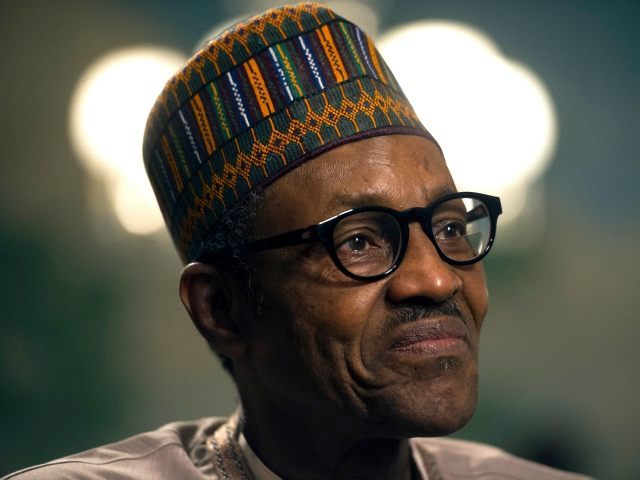The UK Telegraph fired off a sizzling editorial on Tuesday, accusing recently-elected President Muhammadu Buhari of misappropriating British foreign aid money that was earmarked for fighting Boko Haram and using it to persecute his political opponents instead.
“Since Mr Buhari came to power last July, a number of prominent members of the former ruling People’s Democratic Party (PDP) have been arrested and imprisoned without charge,” the Telegraph writes about the Nigerian president. “Among those detained was the party’s official spokesperson. Most of the arrests have been sanctioned by the government-controlled Economic and Financial Crime Commission, which was set up to tackle corruption and receives funding from the Department for International Development.”
Contrary to rosy predictions from some Nigerian military officials that the Islamic State-affiliated terrorist gang was near defeat, and Buhari’s campaign promises to “make tackling Boko Haram one of his top priorities,” the Telegraph accuses the Nigerian government of doing a poor job against the terrorists. The Buhari government is accused of covering up hundreds of kidnappings to make it appear the Boko Haram threat was under control.
A senior U.S. official is quoted as calling the situation, “a scandal in the making.”
“There is no doubt the growing strength of Boko Haram is because President Buhari is far more interested in settling scores with his political opponents that concentrating his energy on defeating terrorists,” the American official continued. “The result is that Nigeria is starting to look more and more like a police state while Boko Haram just goes from strength to strength.”
The article goes on to note that about $2 billion in American aid to Nigeria for fighting Boko Haram “has not been properly accounted for.”
Buhari, 73, is a former Major General who ran what the Telegraph describes as a “brutal military dictatorship” installed by coup in 1983, until he was himself deposed in 1985. His critics argue that he is slipping back into his old authoritarian ways.
The Premium Times of Nigeria on Wednesday carried a statement from Buhari’s senior media adviser, Garba Shehu, dismissing the UK Telegraph’s report as “full of factual inaccuracies,” and saying it also “betrays a shocking ignorance of Nigeria and the country’s ongoing war against terrorism.”
Shehu said the Telegraph author, defense editor Con Coughlin, used a tactic of quoting unnamed officials to make “fact-free and unfounded statements,” and charged that Coughlin “sought out only those opinions which suited and reinforced his disgracefully false headline.”
Shehu went on to accuse Buhari’s political opponents of misappropriating the missing American aid money, including officials from the previous presidential administration, and claimed the Buhari government has “started to recover the looted funds.”
He dismissed claims of Boko Haram’s growing strength as “absurd,” insisted that life is returning to normal for Nigerians who formerly lived in terror of the Islamist gang, and said that Coughlin should submit to both a “refresher course on responsible journalism” and a “crash course on Nigeria.”
However, the Nigerian government’s effectiveness at fighting Boko Haram was also questioned by Germany’s Deutsche Welle, which contended the government has “failed” the Chibok schoolgirls who were kidnapped two years ago this week.
Previous Nigerian president Goodluck Jonathan delivered a “barrage of misinformation” about the Boko Haram situation, in DW’s judgment, while Buhari offered “great promises but small achievements.” Buhari is given some credit for “taking his job more seriously than his predecessor,” but he has not been able to keep Boko Haram from continuing to terrorize northern Nigeria.

COMMENTS
Please let us know if you're having issues with commenting.